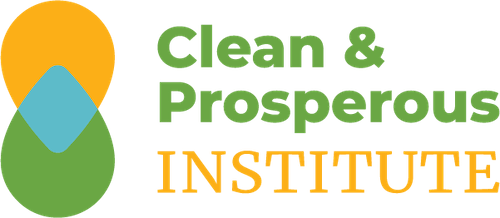Washington State has the second cleanest electricity grid in the entire country. We rank just behind Vermont in the latest state-by-state comparison of who has the least carbon-intensive electricity supply. Even better, Washington has the nation’s most affordable commercial electricity.
Clean & Prosperous Washington
Newsletter
Comment Submission: Clean Air Rule
Following a legislative session where the Washington Business Alliance stood front and center in debates over carbon policy, we continue to collaborate with stakeholders in charting a productive course on this challenging issue for business. In recent months the Business Alliance worked with some of the state’s largest industries and leading scientists to facilitate input for comments regarding the Governor’s Clean Air Rule. Below are the comments that we submitted to the Washington State Department of Ecology on July 22nd, 2016.
Composite Recycling Facility Hits New Milestone
Earlier this month a new agreement was announced between the Composite Recycling Technology Center (CRTC), the Tennessee-based national composites manufacturing institute, and Peninsula College. The CRTC is a prime model that aligns with PLAN Washington’s strategies to support economic growth in rural communities and innovative environmental solutions. Composite recycling supports workforce development in Washington State and the growth of the advanced manufacturing industry.
Proposed “Timber Innovation Act” Boosts R&D for Tall Wood Buildings
There’s new legislation in both chambers of the U.S. Congress that would boost R&D for tall wood buildings. If passed, the Timber Innovation Act could be a game changer for Washington State’s mass timber industry. The bipartisan legislation would open up new markets and create jobs for rural economies by providing research funding, technical assistance, and lower costs for the construction of tall wood buildings throughout the United States.
Washington State’s Mass Timber Opportunity
Four major challenges facing Washington State might be linked by a common solution: an urban planning revolution towards tall wood buildings.
Washington Industries Highlighted at Congressional Hearing on Advanced Manufacturing
Manufacturing plays a critical role in the U.S. economy and national defense, supporting more than 12 million jobs and $2 trillion in the economy. But, in the last decade, we have lost more than 6 million manufacturing jobs. By investing in advanced manufacturing, we can harness science and engineering technology to make U.S. manufacturing more competitive. Sen. Cantwell highlighted investments that Boeing is making in U.S. advanced manufacturing around the new 777x wing, now manufactured in the state of Washington.
Senate Deliberates on Carbon Tax Initiative 732
On February 9th, Senators from the Energy, Environment & Telecommunications Committee convened to discuss the revenue-neutral carbon tax: Initiative 732. In attendance were 79 residents who came to provide input: 51 in support, 20 in opposition, and 8 undeclared. I-732 is on track to appear on the November 2016 ballot. It would impose a revenue neutral carbon tax on the state. The tax would begin at $15 per ton in the first year, increasing to $25 per ton in the second year, and then ratcheting up each year thereafter by 3.5% plus inflation (up to a maximum of $100 in 2016 dollars). To offset this new tax, the initiative bundles in some tax cuts — a one percent reduction in the sales tax, a $1,500 tax rebate for low-income working families, and a reduced B&O tax on manufacturing.
Cruise Electric on Washington’s Scenic 440 mile Cascade Loop
The beauty of the Cascades is a magnet for nature lovers, but until recently a lack of charging infrastructure has left the scenic loop out of reach for electric vehicle (EV) drivers.
Carbon Reduction Investments are Smart Strategy for Electric Sector
A bill under consideration in the legislature would credit utilities under the state’s Renewable Portfolio Standard (I-937) for making investments in projects which reduce greenhouse gas emissions. Expanding the diversity of qualified projects presents a market opportunity for new technologies to reduce carbon while maintaining competitive energy costs for ratepayers.
Are Washington Lawmakers Jumping the Gun on Nuclear Energy?
Nuclear energy has been the subject of vigorous debate for decades, punctuated by the emergence of new technologies and unfortunate accidents. This session, Washington legislators took a serious look at further incorporating nuclear into the state’s energy profile.
